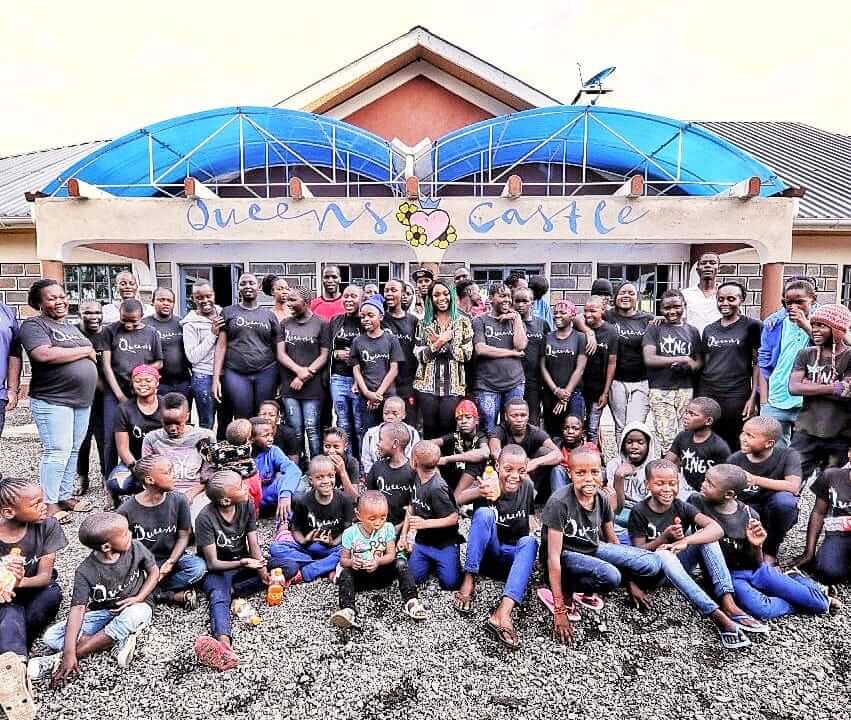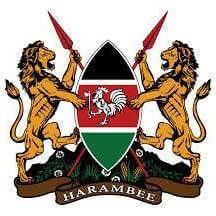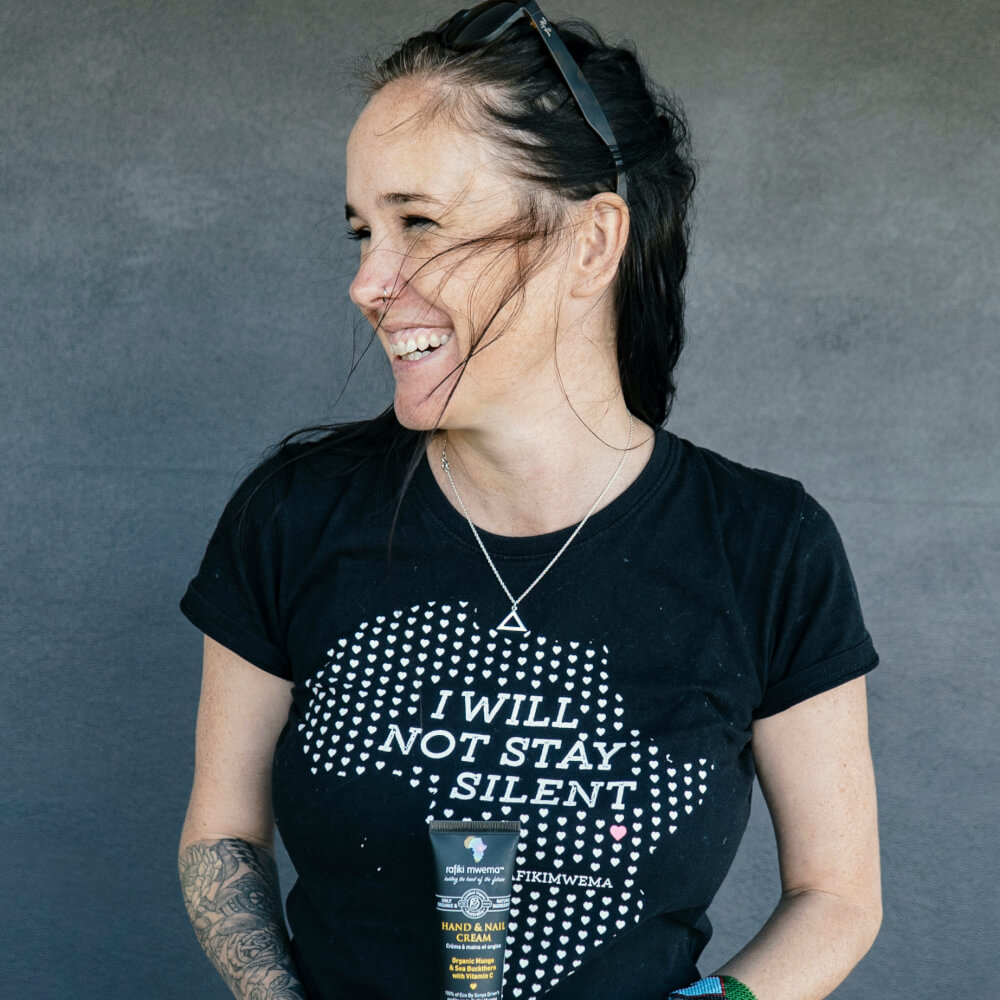
On to the 2nd episode! We hope that you are enjoying the podcast so far. We are thrilled to be getting the word out there about our organisation and especially excited to introduce you to many of our wonderful team that you will hear from in this episode.
In this episode we paint a picture of Doyle Farm… the home of Rafiki Mwema in Kenya.
You’ll meet some of the characters who keep the place running… the farm staff who help to keep the kids fed, the teaching team – making sure the girls stay up to date with their education and the security guards keep everyone safe, You’ll also hear why Doyle Farm is such a great place to work.
We wanted to share with you photos of the amazing people you will hear on this episode so you can picture our amazing farm and staff for yourself.
Uncle Stephen explains why the farm exists and what it is all about.







Uncle Tony (far left) shares a little about his role and the various animals they have on the farm.






Uncle Stephen from Jasiri School tells us why it’s important to have a school on the farm..

Uncle Kelly from Jasiri School explains the difference between his experience at Jaciri Rafiki School in contrast to his previous career outside in the Kenyan school system.
Uncle Jack from Jasiri School explains how things looked before the school opened and why that approach didn’t work.
Aunty Agnes from Jasiri School shares the impact of the Jasiri School approach on the children as opposed to what happens in other schools.
We ask our Maasai security guards about working at Rafiki Mwema, if they get scared and do they enjoy their job.
Prudence, our office manager tells us about why she enjoys working at Rafiki Mwema.
Our liaison to Australia, Michael, tells us about the opportunities he has received while working at Rafiki Mwema and what he enjoys about his role.



Thank you to our beautiful ambassador, Stella Mwangi, for allowing us to use her incredible song, Makele on our Podcast. She continues to be an inspiration to our children and we can’t wait for her to come back and visit us at Doyle Farm.
We hope that you enjoy The Rafiki Way. Please subscribe and leave a review so others might sign up and learn about the work we do also.
Transcript
(We have not had time to check through this to ensure accuracy. please understand there might be some errors)
Speaker A: Hey again.
Speaker A: I’m Karly Nimmo and welcome to episode two of the Rafiki Way.
Speaker A: Rafi Muma’s vision is a big one.
Speaker A: A safe childhood and bright future for every Kenya in.
Speaker A: And their mission is to support Kenyan children through trauma by providing safety, nurture, education and hope.
Speaker A: And while if you’re listening to me now, you’re probably already somewhat familiar with some of the programs and services, it’s unlikely, you know, the ins and outs of the entire organization and what it provides, or have met the people in the background and on the ground in Kenya.
Speaker A: So in the next couple of episodes, we’ll explore all the various puzzle pieces and the people that make up Rafiki Mwema starting with painting you a picture of the official home of Rafiki Doyle Farm.
Speaker A: So, Rafiki Mwema has four homes and various buildings on a large property called Doyle Farm.
Speaker A: It’s named in honor of Longterm supporters, Kate and Noel Doyle, who purchased the property and very generously gifted it to Rafiki.
Speaker A: And Doyle Farm really is a farm, or as they call it in Kenya, a shamba.
Speaker A: There’s a crew there of six farm workers who grow extensive crops all year round, which helps to feed the children as well as the staff.
Speaker A: And any excess is sold at markets to raise additional funds for Rafiki.
Speaker A: It’s used in the feeding program which we’re going to dig into in the next episode, or it’s donated to the very poor families who are part of Rafiki’s outreach program.
Speaker A: So here’s Stephen.
Speaker A: Stephen is the farm manager at Doyle Farm and he’s going to explain a little bit about why the farm exists and what it’s all about.
Speaker B: I chose a 50 women because I noticed the objective of the institution was to take care of the vulnerable children.
Speaker B: I have passion for hami and having a team that has given the firm the autonomy, grant its affairs, encourages me and other firm staff to do all that is possible in making sure that our prime goals are achieved.
Speaker B: The future plan for the farm is to produce adequate food supply for children and street families, ensure that enough food is produced and the supplies increased to make the farm cost effective, thus cut the cost of production.
Speaker B: Traditional canyon crops are grown on the farm.
Speaker B: However, we intend to introduce other varieties of indigenous crops like yam, cassava, sweet potatoes and Aroms.
Speaker B: These are highly nutritious and good for the growing children kids.
Speaker A: And now let’s hear a little bit from Tony.
Speaker A: So, Tony is the groundsman at Doyle Farm and he’s going to share a bit about his role and the various different animals they have on the farm.
Speaker C: My role as a farm staff is to carry out farm activities which include planting, cultivating and harvesting crops, raising livestock, that is, feeding, milking, spraying, amongst others.
Speaker C: Other roles include combat and general grounds work, repairing and fixing SIBO structures in the houses, maintaining and repair SIBO farm machineries and building, ensuring safety of ravikimo properties and therapeutically parenting the children, which is the key role of organizations.
Speaker C: At Raviki Doors Farm, we have cows, dogs, chicken and rabbits which are under care of the farm staff team.
Speaker C: We have two daily cows, namely Neisy, Afreshian and Lee and Ayeshire.
Speaker C: We also have three calves, fem, Macy and Amanda.
Speaker C: The two dairy cows produces an average of 20 liters of milk dairy which is supplied to the three houses and also to the Rose house.
Speaker C: This cuts the cost of buying these scars commodity from the milk fenders.
Speaker C: Here in the farm we also raise chickens.
Speaker C: Our major purpose of raising chicken is to provide eggs.
Speaker C: At Meat, the average of 20 eggs is produced daily, which is supplied to the houses in every week.
Speaker C: We also layer rabbit with the purpose of cutting the cost of buying meat, which is very expensive.
Speaker C: They also produce greed cobos manure, which is used in the farm.
Speaker C: The Vitoy farm are six German servant dogs.
Speaker C: They play very important role in organization that is guarding security and also to be assured as Raviki murmur family pets.
Speaker C: They are very friendly to children and stuff, but very fierce, especially at night.
Speaker A: So there are a number of homes and buildings on Doyle Farms.
Speaker A: There’s a small girl’s house which, as the name suggests, is a home for the little girls to live.
Speaker A: Then there’s the Queen’s Castle, which was built in 2016.
Speaker A: The Queen’s Castle is a house for our bigger girls and it was named after Constance Hall’s major fundraiser in 2016 that raised $200,000, which we’ll dig into a bit deeper in a future episode.
Speaker A: So the excess funds from that fundraiser after building Queenscastle also built Makia Matoto, which means little angel.
Speaker A: This house is known as the Transition House.
Speaker A: It’s a small building next door to the small girl’s home and it’s where the new girls stay when they first arrive to help them settle into life.
Speaker A: At Doyle Farm, it also helps to minimize their fears about where they’re now living and give them the opportunity to really bond with their key worker who stays with them.
Speaker A: Then in 2018, King’s Castle was built to house the boys.
Speaker A: It’s actually divided into two halves.
Speaker A: So there’s the small boys and the big boys house.
Speaker A: The entire funds for that were provided again by Constance Hall, who donated $1 from every like a Queen book she sold.
Speaker A: And in addition, there’s Aurumoy, built in 2019 with funds raised by the participants in the 2018 New Zealand Trek.
Speaker A: This is a special needs house built for a young girl whose mental health issues stemming from her abuse was so severe that she can’t manage to live with the other girls.
Speaker A: There’s Kenyatta’s Castle, which is for training, visitors and staff meetings.
Speaker A: There’s the office, as well as a small building which was once a chicken coop and was turned into a therapy room.
Speaker A: But this has since moved over to the new school.
Speaker A: So they now use this to teach the kids sewing.
Speaker A: This is important because it’s a skill they can then use in the future to create some income for themselves and their family and rounding it out.
Speaker A: There’s also a school building.
Speaker A: So Rafiki Muhamma is dedicated to providing their children with quality education and Jassiri Rafiki School is one of the charity’s proudest achievements.
Speaker A: So the school building includes four spacious classrooms, a special needs classroom, a therapy room and a teacher’s room with storage.
Speaker A: There’s even an area to play outside.
Speaker A: So it means that the younger children can learn on the safety of Doyle Farm and their key workers are never too far away if they need them.
Speaker A: The school employs five teachers who understand how trauma can affect the children’s ability to learn and to interact with others.
Speaker A: So now let’s meet some of the teaching team to explain a little bit more about the school.
Speaker A: First of all, we’re going to hear from Stephen about why it’s important to have a school on the farm.
Speaker B: Security of our girls is our priority as chaos.
Speaker B: This is so paramount considering the plight of these girls, and that some of their defilers or perpetrators are working freely in the community after they were released and are out of jail by bond.
Speaker B: And therefore we cannot take chances or gamble with the security of the girls here at Trafficking Mama Jacilli school act as a preparatory reason being that some of the girls we receive at Jacilli or at the farm have never joined school at all.
Speaker B: They are very young and some of them are at tender age.
Speaker B: Therefore we provide a wonderful platform in preparing them for schooling those who had began schooling while in their homes, and you can imagine the trauma they went through and could not even go back to school.
Speaker B: We assist them to recap or to remember what they have been taught or what they have been learning so that they can have that consistency in learning as we prepare them to join school outside farm.
Speaker A: And now meet Kelly.
Speaker A: Kelly is going to explain the difference between his experience at Jaciri Rafiki School in contrast to his previous career outside in the Kenyan school system.
Speaker D: I’m going to clock two years.
Speaker D: Actually, I have already clocked two years.
Speaker D: It has been quite a journey in terms of changing my mindset from just being a normal teacher to a therapeutic carer and teacher in the Kennedy education system.
Speaker D: As a teacher, I have been trained in psychology and I do know how to therapeutically deal with the child to some extent.
Speaker D: But what we do at Rafiki Myma is really quite special.
Speaker D: Some of the girls that we have, have gone through really, really traumatic experiences that for me, that is really heartbreaking.
Speaker D: So the difference between Joseph and other schools that I’ve taught is really huge.
Speaker D: It is really huge.
Speaker D: Previously it was just a matter of chasing mean scores and getting marks and teaching this child, that was just my job.
Speaker D: But right now I am acting as a guardian, as a parent, and I’m supposed to help this child understand the things that I’m trying to teach them or rather the knowledge that I’m trying to impart in them.
Speaker D: And also I’m supposed to understand the kinds of feelings that they’re going to based on the traumatic experiences that they’ve gone through.
Speaker D: So it is really different and I’m really glad about the training that we’ve been getting.
Speaker D: So right now I know how to deal with certain big behaviors and big experiences that we have seen within the Srira Rafiki.
Speaker D: And also very, very important.
Speaker D: Corporal punishment is a nono in Rafiki murmur.
Speaker D: Which is a very good thing.
Speaker D: Which it does not hinder the healing process and the growth process within the child in outside schools or other schools outside Raffleka mama.
Speaker D: We used to use corporal punishment as a method of pushing the children to achieve more or rather get more marks.
Speaker D: Because that was the only thing that the goal of us teaching in outside schools.
Speaker D: That means that grade and without even looking at the emotional value or rather the emotional ability of this child.
Speaker D: So right now, Gauging, the emotional ability, the physical ability and the mental capacity of this child is paramount within Rafi muma.
Speaker D: And that is what we do at Jesse Rafiki.
Speaker D: So there is no corporal punishment.
Speaker D: You can teach a child, you can’t be farmed with a child from a place of love without having to use a cane or pinching or shouting at and shaming them.
Speaker D: It is very different from what we used to do in outside schools.
Speaker A: And meet Jack.
Speaker A: Jack is going to explain how things looked before the school opened and why that approach didn’t work.
Speaker E: Before Jessiri schools, our girls used to attend their classes in their bedroom, sitting in their beds, some also having their classes around the living room, whereby there’s a lot of movement in and out and this makes their guards not to concentrate fully with what they are being taught by their teachers.
Speaker E: The important of Jessie school is the environment is very conducive for girls to take on their learning with the support of our qualified teachers and well trained therapeutically, which enable us to understand all the kind of behaviors and the traumatized brain that we have around and through that, the teachers support them and understand their inner feeling.
Speaker A: And here’s Agnes.
Speaker A: She’s going to share the impact of the jussiri approach on the children as opposed to what happens outside in the.
Speaker F: School system in Jesse, where the learners are being talked to therapeutically with love and care and this helps them to build their self esteem and be confident in themselves.
Speaker F: Also, the relationship with the learners and teachers is good, where learners are able to express themselves without any fear and they can make a job with their teachers freely, without any fear of anything, unlike in the other schools where the teachers are more superior and feared a lot.
Speaker A: From what you’ve heard so far, you’re probably gaining some understanding on the importance of providing a safe place for these kids.
Speaker A: We’ve already established there are dogs on site, but there’s also a dedicated team of security guards at the farm to make sure the kids are safe.
Speaker A: They’re known as the Masseye guard.
Speaker A: So let’s hear from them now.
Speaker A: First of all, we’re going to have one of the guards answer the question, are they scared?
Speaker G: Yes.
Speaker G: Sometimes I get scared because people come across their fence and you must be cared when they just want to enter in the farm.
Speaker G: And also wild animals come across and you must be sigilant, you must be responsible to make sure there is no anything who can just enter the Rafiki farm.
Speaker G: So I am scared and I’m proud and I am very confident to make sure there is no anything come across.
Speaker A: Terrafica, here’s another of the Masseyeguards, and they are going to answer in Swahili the question around what weapons do they have on site?
Speaker A: And then we’ll have a translation for you to English.
Speaker A: The Swahili language is just so beautiful.
Speaker A: We couldn’t cut this out.
Speaker G: Saying that they have the weapons protecting member, the entire Fiki member family.
Speaker G: They have spears, they have matchets, they have clubs and they have both these ones they have so that they can protect the entire Doyle family as security.
Speaker A: And finally, here’s a mass eye god talking about why they love working at Rafiki so much.
Speaker G: I love so much working at trafficking wema because here at trafficking Wema, we have children.
Speaker G: And these children, when they have made some mistakes and when you talk to them using the therapy training that we have, even though it is small, but we can realize that once we talk to them, they can come down and everything goes back to normal.
Speaker G: I also love working at A team because of the staff.
Speaker G: Our staff gives me a lot of love, ranging from our senior general manager to other staffs.
Speaker G: We do understand one another and we do advise one another.
Speaker G: I also love working at a freaking moment.
Speaker G: Mostly also because of the Australian team led by Sarah.
Speaker G: I have realized that these people are so much loving and there’s so much caring.
Speaker G: I witnessed this with our family, one of us, almost the deceased when he died, the Australian team helped us and everything else went on well.
Speaker G: His family are now very well catered for back at home and they are feeling so much good.
Speaker G: I want to say that I love working at A Fikima and I will continue working.
Speaker A: Rafiki has a strategic plan in place for 2023 to 2026.
Speaker A: And part of that plan, strategic pillar number three, is to be an employer of choice, valuing, respecting and investing in its people.
Speaker A: The team at Rafiki understand that staff are such an important part of the success of Rafiki, and so they’re dedicated to ensuring the staff have the right skills, capabilities and capacity aligned with the organization’s purpose.
Speaker A: They want the staff to feel valued, supported, seen and heard, make sure that information is shared, knowledge is nurtured and development, prioritized their vibrant volunteer base, furthers the mission and robust, ethical and transparent people practices are in place.
Speaker A: Key workers provide traumainformed care and they’re critical to the children’s healing process, helping them slowly learn to trust again.
Speaker A: So these key workers need to deeply understand how trauma can impact a child.
Speaker A: This helps them make sense of any big behaviors and emotions that the children may have and respond to those in a calm and fair way.
Speaker A: Rafiki Werma runs weekly training sessions to equip their team with the knowledge and strategies they need to provide the best possible care.
Speaker A: Anyone can attend the training, and in the past it’s included members of the farm crew, rafiki’s driver, Uncle David and the mass eye guards.
Speaker A: In addition, staff receive firstaid training and It related training to boost computer and software skills.
Speaker A: Rafik is also committed to supporting their staff financially, to undertake certifications in fields that will help them add value and improve their knowledge and skills.
Speaker A: It’s an incredibly effective way for Rafiki to grow engagement and loyalty with their staff, which is super important, and show them that they’re valued as well as building an expert team.
Speaker A: So to set up the staff for future success, rafiki recently engaged an HR company to come in and give an independent and honest review of how the staff feel about their work and the organization, highlighting what’s working and what could do with some improvement or tweaking.
Speaker A: We might hear a little bit more about this later, but for now, let’s hear in their own words what the staff feel and think about working on Doyle Farm.
Speaker H: Meet prudence in other organizations in Kenya, there are very few instances where your boss can agree to the suggestions that you give out in helping the organization and also they can respect you.
Speaker H: So many bosses despise especially they are juniors and they are mistreated.
Speaker H: That’s a point for Raski Mama, because everyone is treated equal and we have so much respect from our bosses.
Speaker H: This is the only or few of the organizations where you can come with your child after maternity leave and stay with your kid.
Speaker H: Here working up to two years, monitoring the growth of your kid while you are working with this.
Speaker H: It gives you so much peace when you’re working because you know that your kid who is an infant or a toddler is secured.
Speaker A: And here’s Michael.
Speaker G: I really enjoy seeing our children whom at the time of arrival at Doyle Farm were tortured psychologically with frightening faces.
Speaker G: Leaves trafficking.
Speaker G: Werma after series of therapeutic session, healed and have promising future.
Speaker G: That really makes me enjoy working at Trafficking.
Speaker G: Murmur I coolly.
Speaker G: Also enjoy working in this environment because this environment is conducive.
Speaker G: It is free, where I work with minimal supervision, where I am able and I am given opportunity to display my skills in many ways.
Speaker G: I really also enjoy working here at Rafiki Mwema because our director Sarah is always ready to train.
Speaker G: She’s ready to answer questions at any given time and she appreciates all of us.
Speaker G: Sarah gives me the opportunity to grow and in case of any mistake I make in my line of duty, she will correct me with a smile.
Speaker G: I really love working at Rafiki Mwema.
Speaker A: Now you’ve got a bit more of an idea about how much is involved in life on the farm and how much goes into making sure the around 70 children at Doyle Farm are safe, healthy, healing and learning.
Speaker A: And on top of these 70 children, there’s also 46 staff on site too.
Speaker A: So you can probably start to imagine the running costs associated with running Doyle Farm.
Speaker A: And we haven’t even dug into the outreach programs, which we’ll do in the next episode.
Speaker A: So let’s hear now from founder Sarah Rosborg to find out the best way you can help contribute to these ongoing costs.
Speaker I: There are so many different ways you can support us at Rafiki.
Speaker I: One of the most important ways is by becoming a child sponsor.
Speaker I: This is $50 a month and you receive a tax receipt for that.
Speaker I: Within Australia.
Speaker I: You can pay that weekly or fortnightly, of course.
Speaker I: And we try to save funds by not sending things out in the mail because it’s extra costs that we just don’t have.
Speaker I: So we’ve established a sponsored portal that allows you to log in online and receive updates on how your child’s doing.
Speaker I: Keep up to date with them, you can write to them.
Speaker I: They love receiving letters in the mail, and you can also write to them online.
Speaker I: Depending on their age, they are able to write back to you as well.
Speaker I: And it’s a really special connection.
Speaker I: We often try to match the ages with perhaps children of the sponsor family because it’s a special connection.
Speaker I: And I believe it’s a really wonderful thing for children to do all around the world.
Speaker I: So it really helps us at Rafiki knowing that those funds are coming in each month to support the work we do, because every month comes around and our bills come around again, just like your family, our bills are huge.
Speaker I: So it’s a really great way to support us.
Speaker I: And of course, if you can’t afford $50 a month, because we are aware that that is a lot of money, we have other sponsorship plans as well.
Speaker I: Or you can just give a donation of your choice to wherever most needed.
Speaker I: So we’ll put those funds to whatever project is in most need at that time so we can make that decision for you.
Speaker I: Jump on the website and have a look, there’s a button there that says how you can help, and there’s all different ways on how you can help.
Speaker I: And we appreciate every single cent, every single dollar that we’ve given.
Speaker A: Next episode, we’ll be looking at what happens outside of the farm and into the wider community.
Speaker A: In the meantime, we would love for you to share this podcast far and wide.
Speaker A: So please tell your friends, share it on your socials and tag us, leave us a review, do all of the things to help us get this podcast to as many ear holes as we possibly can.
Speaker A: Every little bit helps Rafiki get closer to making their vision and mission a reality.
Speaker A: Until next week, I’m Kylie Nimmo, and this is the Rafiki Way.
Speaker A: To find out more information about Rafiki Mwema and how you can get involved, head to Rafikiwema.com and follow at Rafiki Castle on Instagram.





